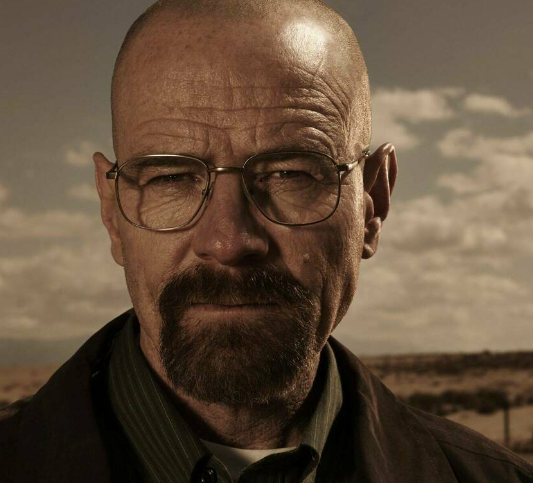Which Way Do We “Break”? “Breaking Bad” and the Human Spirit
Warning: The following article contains potential spoilers.
Dr. Jordan Peterson, the controversial yet influential Canadian psychologist, author, and former counselor and professor once posed a terrifying thought experiment. He always ran it by his freshman students: “Imagine you were a young adult in Nazi-era Germany. How would you have acted?” Most of us (assuming we weren’t one of the victims) would’ve undoubtedly acted as a hero/heroine. Right? We would have been like Oskar Schindler. We would have stormed the concentration camps and rescued all its prisoners… or so we think. Peterson presents a more disturbing truth. The reality that most people would have either become active perpetrators or timid & indifferent observers is far likelier. And, yes, that is certainly horrifying, which Dr. Peterson explicitly acknowledges. But Peterson—a deep follower of 19th-century Swiss psychiatrist Carl Jung—believes that people can only truly become good if they understand their capacity for evil.
One of Carl Jung’s famous concepts is “the shadow.” The shadow is all the parts of us we keep hidden from the world (which is to say—other people). This “persona” is the face we put on in public…the “smiling mask” of theater…the polite, people-pleasing, potentially self-sacrificing individual who doesn’t wish to hurt other people’s feelings. Except- as both Peterson and Jung note- most of us realistically aren’t that simple. Even the most agreeable among us still want or don’t want things. We have boundaries we set up, and when someone preys upon us or encroaches upon our boundaries or deprives us of our desires we get angry. We get upset. We get bitter and resentful, and if we don’t speak up…if we don’t address what’s eating away at us, that “shadow” or “dragon” inside of us only grows bigger. People who get resentful may then become vindictive and then potentially murderous or even genocidal. “It’s no joke,” as Peterson often says. There’s a deep reason why enterprises like therapy and free speech are so important!! Truthful dialogue can often literally prevent massacres! This all brings us to the topic of one of television’s most iconic shows– “Breaking Bad.”
“Breaking Bad”- the thrilling crime drama and brainchild of Vince Gilligan- first premiered in 2008 on AMC. Actor Bryan Cranston vividly brought to life Walter White, your average, run-of-the-mill, milquetoast family man living in Albuquerque. Who is Walter White? Think Mr. Rogers meets Ned Flanders. Walter doesn’t stick out of a crowd. He has a wife, Skyler (Anna Gunn), a son, Walter Jr. (R.J. Mitte), and a daughter on the way. Walter isn’t a happy man though. He and his wife are facing an unexpected pregnancy. His son has cerebral palsy. His home is falling apart, and he receives a menial salary as a high school chemistry teacher. In fact, his wages are so low he moonlights at a car wash. And then…the cough-stricken chemistry teacher collapses at work one day and is rushed to the doctor. His diagnosis is grim- lung cancer. Stage four.
This is where Walter really explodes inside. One day it’s his 50th birthday. His family surprises him at home, and his brother-in-law, Hank Schrader (Dean Norris), shows him an arrest video. Hank is a DEA agent who recently conducted a drug bust. Walter, intrigued, asks how much money such criminals can make. It’s an “innocent” question. “Innocent” enough…except it isn’t. Walter has ulterior motives. He goes on a “ride along” with Hank, and, when he encounters Jesse Pinkman (Aaron Paul), a wayward former student of his, he blackmails him into a partnership. Walter angrily quits his job at the car wash and pursues cooking (manufacturing) methamphetamines (using his chemistry expertise to do so). His goal is simple- make enough money before “kicking the bucket” to provide for his family. If he doesn’t, they’ll inevitably end up destitute!
This is where both Gilligan’s brilliance and Cranston’s acting really shine. Walter is very much a sad and pitiable figure being dealt a very rough hand, and he’s trying to take the most noble and necessary path he can…or is he? What drives Walter? Walter is a brilliant man who understands protons, electrons, and ions like the back of his hand, but he doesn’t understand himself. As the seasons transpire, Jesse and Walter’s enterprise grows bigger and bigger. As the two become entangled with Tuco Salamanca (Raymond Cruz)- a cartel thug, Gustavo Fring (Giancarlo Esposito)- a drug kingpin/fast food joint owner, Jimmy “Saul Goodman” McGill (Bob Odenkirk), a corrupt criminal lawyer (who even receives his own successful spinoff series, “Better Call Saul”), and plenty of other criminals and shady figures, Walter’s character devolves until he is unrecognizable.
The prodigious meth cook shaves his head for chemotherapy, but, while the cancer in his lungs subsides, the cancer in his soul metastasizes! Walter adopts a new moniker- “Heisenberg” (named after the German theoretical physicist who discovered the “uncertainty principle”). He kills people. He has people killed. He lies to his family, and her berates his partner. He manipulates everyone around him, and, while he justifies his actions in the name of “protecting [his] family,” he ultimately does it all for himself. Walter isn’t a sadist, though. He doesn’t enjoy inflicting pain on others solely for the pure sake of it, but he is an evil man. He enjoys the grandiose thrill of everything he does, and he doesn’t care who he must hurt along the way. His greed and his ego come first, and this is ultimately why he is such a terrifying figure. “He’s just like us,” as the adage goes.

Dr. Peterson explicitly alludes to “Breaking Bad” in his one of his lectures, comparing it to the 1992 nonfiction work, Ordinary Men, by Christopher Browning. Ordinary Men tracks the real-life story of Reserve Police Battalion 101, a contingent of German officers during World War II. The officers are supposedly old enough to resist all the Nazi propaganda and are even explicitly given the option to “leave,” but they don’t. By the end of the book, they’ve committed numerous atrocities that defy explanation. Walter White isn’t a Nazi himself but there’s no doubt he (or anyone like him in real life) would’ve easily become one were he alive then and there—proving Peterson’s point.
Walter also deeply parallels numerous other classical literary figures. He toggles between good and evil like Robert Louis Stevenson’s eponymous Dr. Jekyll & Mr. Hyde, and he thinks like Satan from John Milton’s Paradise Lost. Walter is intelligent and hyper-rational, but he is bitter and vengeful and believes positions of high or low status are all that exist. Walter can’t bow down to anyone and he won’t’! He’d rather “rule over Hell than serve in Heaven.” Walter White has often been cited as one of television’s most notorious anti-heroes. “Breaking Bad” came out in in the “golden era” of television.
This was an era in which many morally questionable characters emerged, including (but not limited to) Tony Soprano from “The Sopranos,” Don Draper from “Mad Men,” Dexter Morgan from “Dexter,” and Omar Little from “The Wire.” However, out of all these (in)famous anti-heroes, I would argue Walter White is strikingly unique. Both Tony Soprano and Omar Little are established career criminals. They don’t “break” into that world. Dexter Morgan is a serial killer with a rigid moral code to only snuff out other killers, and Don Draper, while alienated and emotionally complex, isn’t a criminal. Walter is the only one though who “enters” a depraved world. Or does he? As Gilligan’s brilliantly written series seems to ask— “Was Walter White ever really ‘good’? Or was he always just an evil man who never acted out (until he did)?”
Discover more from DG Speaks
Subscribe to get the latest posts sent to your email.




